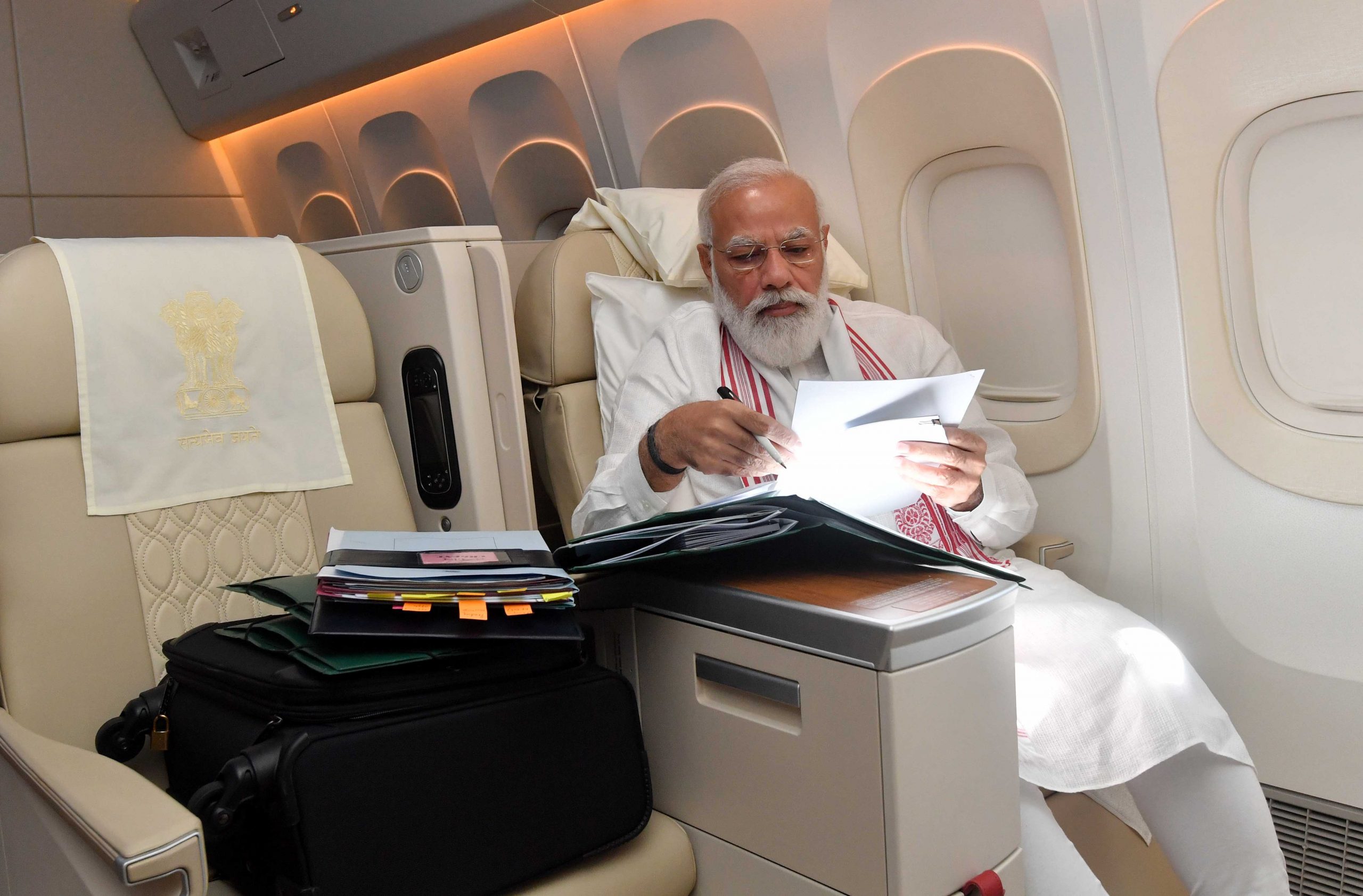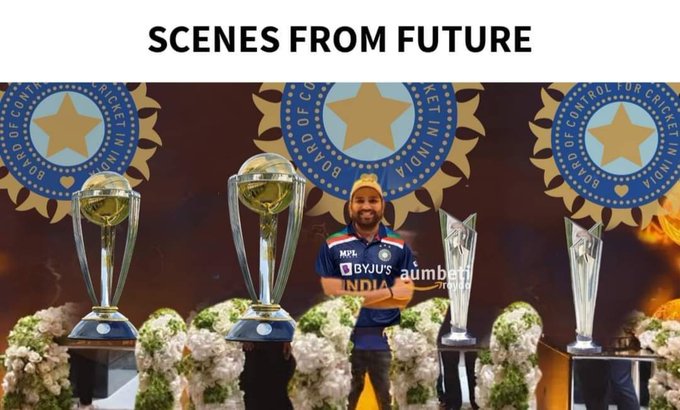Latest Art & Culture
Snapped: Between a chat and a deal!

[vc_row][vc_column][vc_column_text]Super-aggro Indians on social media go for Snapdeal’s jugular when they are mad at Snapchat founder. Anger (or is it ignorance?) bubbles over in Indian social media
By Vikram Kilpady
Snapchat is not Snapdeal, why it’s not Snapdeal is an existential question. Snapdeal is an Indian shopping website and app.
Snapchat is this popular phone messaging app in the West that allows the sending of images and multimedia. If Harvard grads started Facebook, Snapchat was birthed by students of Stanford University. But that’s not the point of this piece.
With Twitter and Facebook warring over who grows most and fastest in India, and with Google maintaining a respectable distance from social media after burning its fingers with Google Plus and other previous attempts that flunked out of class, Snapchat is one service which is keeping its head and body well away from India.
Absences make the hearts grow fonder, right? Though there has been no absence in this case, India, its literate cellphone users and the media, tech and otherwise, have all been waiting for Snapchat to land here. Snapchat’s biggest advantage, unlike the Facebook-owned Instagram, is that anything you post on it can’t be accessed after sometime.
Therefore the premium, and the thrill, of seeing a photo of a friend or a lover that will, well, self-destruct like the messages to Ethan Hunt in the innumerable Mission Impossible franchise films that have sustained Tom Cruise into his middle-middle age. But this is not about Tom Cruise or Shah Rukh Khan, for that matter.

Snapdeal CEO Kunal Bahl who has had to face flak after Spiegel’s disinterest and its purported reasons went public
Many Indians got to know of Snapchat when they heard a friend of a friend say on Twitter or Facebook that its CEO Evan Spiegel said he didn’t want to take the app to India. While this conversation is said to have been spread by a disaffected employee who fell out with Snapchat, Evan Spiegel is said to have told this employee that he wouldn’t go to India because it is a poor country.
Did Spiegel mean India was poor on data networks or because many of its citizens were poor, we don’t know. We also don’t know whether Spiegel was speaking of India before the Reliance Jio launch or with new, fresh GDP figures in mind because those GDP rates are flying off the page what with the stellar buzz of demonetization.
But the unverifiable fact that India was being called poor, and that too, when it was on the superhighway to be on par with the superpowers of the world, was too much for the loyal India defender on social media. It hurt the delicate innards of the troll brigade that has Twittered and Facebooked its way into cultural and electoral history; cultural for making cusswords and crassness mainstream and electoral for making the media think that 140-characters were indicative of one’s political point of view.
The troll sena had to avenge the insult on Mother India, Vande Mataram, so what did they do? While frothing and, occasionally wiping away the unstoppable, unending spittle, searching for apps on their phone, they deleted the first app that had Snap in its name, which unfortunately in India is Snapdeal, an Indian online marketplace app. Snapdeal is about to be swallowed by another Indian shopping app/site, Flipkart.
Therefore, Snapdeal is not Snapchat. Snapdeal’s CEO is Kunal Bahl. Not Evan Spiegel.
PS: This is also the week when a troll who specialised in abusing journalist Rana Ayyub on Twitter lost his job in Dubai and made his way back to God’s Own Country. His current whereabouts are unknown.[/vc_column_text][/vc_column][/vc_row]
Entertainment
Yashraj Mukhate collaborates with Amit Trivedi for Mann Dhaaga song
In a post circulating on Instagram Yashraj Mukhate talks about his experience of listening to Amit Trivedi’s music and recalls how he had always dreamt of collaborating with Amit Trivedi. He said his dream came true 2 years later in 2024 where he collaborated with Trivedi on the song Mann Dhaaga.
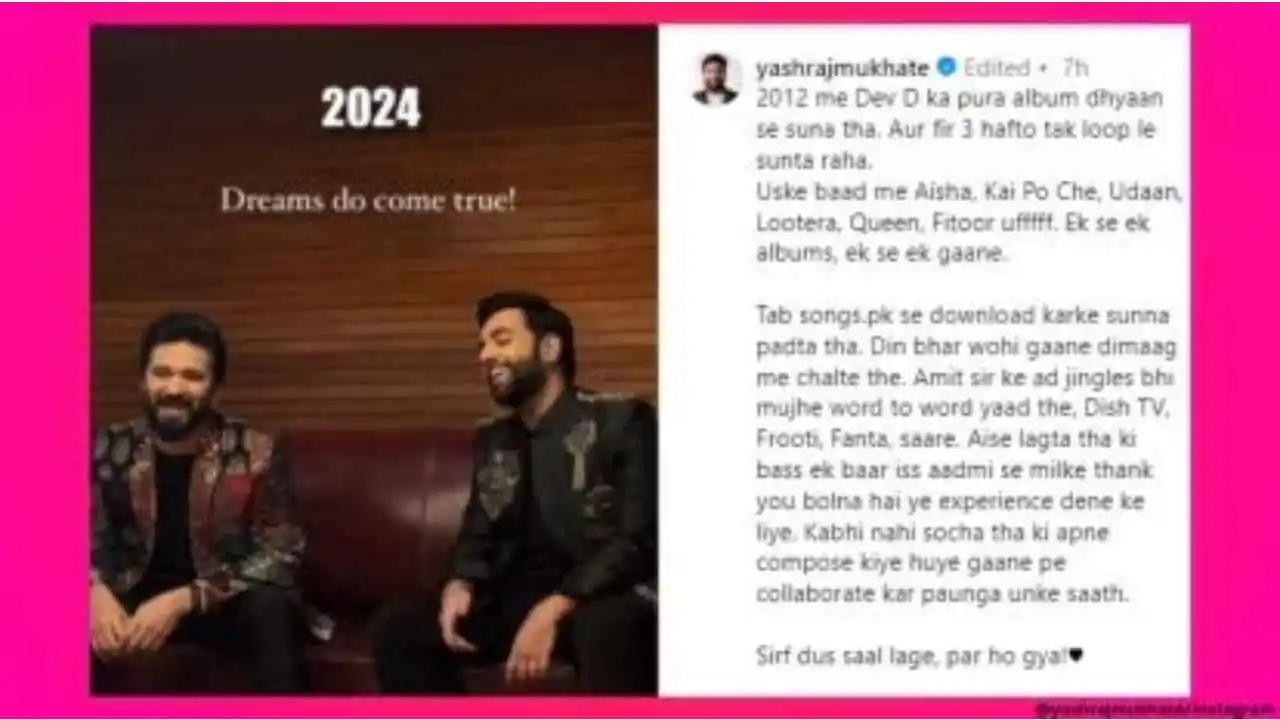
Amit Trivedi is known for his soulful compositions which weave profound lyrics, captivating music lovers. His songs spark a deep desire in aspiring artists to collaborate with him. Music producer and You Tuber Yashraj Mukhate had immense admiration for Trivedi’s artistry. In a post circulating on Instagram Yashraj Mukhate talks about his experience of listening to Amit Trivedi’s music and recalls how he had always dreamt of collaborating with Amit Trivedi.
He said his dream came true 2 years later in 2024 where he collaborated with Trivedi on the song Mann Dhaaga. He wrote that he had been listening to the entire Dev D Album carefully in 2012. And he kept listening to it on loop for 3 weeks. He continued to listen to Amit Trivedi compositions in Aisha, Kai Po Che, Udaan, Lootera, Queen, Fitoor continuously. He said he could not stop himself and became a big fan of the music director. He said he started dreaming of meeting his idol one day and collaborating with him.
He recalled that he had to download songs from songs.pk and listen to them. He said the songs kept running inside his mind all through the day. He added that he even remembered Amit Trivedi’s ad jingles word for Fanta, Frooti, Dish TV and all of them.
Mukhate said he always dreamed of meeting Amit Trivedi and wanted to thank him for giving this experience. The post has gone viral on social media with 96,445 likes till now. Large number of social media user commented on the social media post where one user Parth said the Yashraj Mukhate was truly an inspiration. One user said his dedication had brought him to level. One user said a man should make all his dreams come true by going through one hustle at a time.
Book reviews
The Sattvik Kitchen review: Relook at ancient food practices in modern times
If you are the one looking to embrace healthy food habits without compromising on modern delicacies, then this book is a must read!

The cacophony of bizarre food combinations across the streets of India has almost taken over the concept of healthy food practices. Amid this, yoga guru Dr Hansaji Yogendra’s The Sattvik Kitchen, published by Rupa, is a forthright work that takes you back to ancient food practices and Ayurveda.
As the subtitle reads, The Art and Science of Healthy Living, the book endows a holistic approach to ayurvedic diet along with modern evidence based nutrition. From Basil-Broccoli Soup to Sprouted Green Gram Salad and Strawberry Oats Smoothie to Mixed Dal Parathas, the book not only provides you with the recipes but also stresses on healthy cooking tips together with nutritional benefits.
Besides, Dr Hansaji Yogendra’s book emphasizes on the traditional methods of food preparation and the advantages of using traditional cookwares like iron and copper vessels. The narrative portrays a balanced approach, knitting traditional wisdom with contemporary scientific understanding.
The author, through her book, sheds light on the principles of Ayurveda and highlights the metamorphic potential of adopting ancient food practices. She explains how our body reacts to food in terms of timing, quantity, manner of consumption and seasonal considerations. The book adeptly reintroduces ancient home remedies tailored to address various contemporary health issues.
Dr Yogendra, in her book, decodes the importance of nutritional knowledge to optimize both immediate and long-term health outcomes. It provides deep insights to understanding the intricate relationship between food choices and overall well-being, weaving Ayurveda with practical perception.
The book not only celebrates food philosophy but also offers a practical view into weight loss, well-being, and the profound impact of dietary choices on both physical and emotional aspects of our lives.
If you are the one looking to embrace healthy food habits without compromising on modern delicacies, then this book is a must read! The book is a roadmap to navigate the challenges of the modern day kitchens.
Book reviews
The Deccan Powerplay review: Bashing Chandrababu Naidu and his legacy
Amar Devulapalli’s book The Deccan Powerplay cornersthe TDP strongman with every petty incident exaggerated a la Baahubali
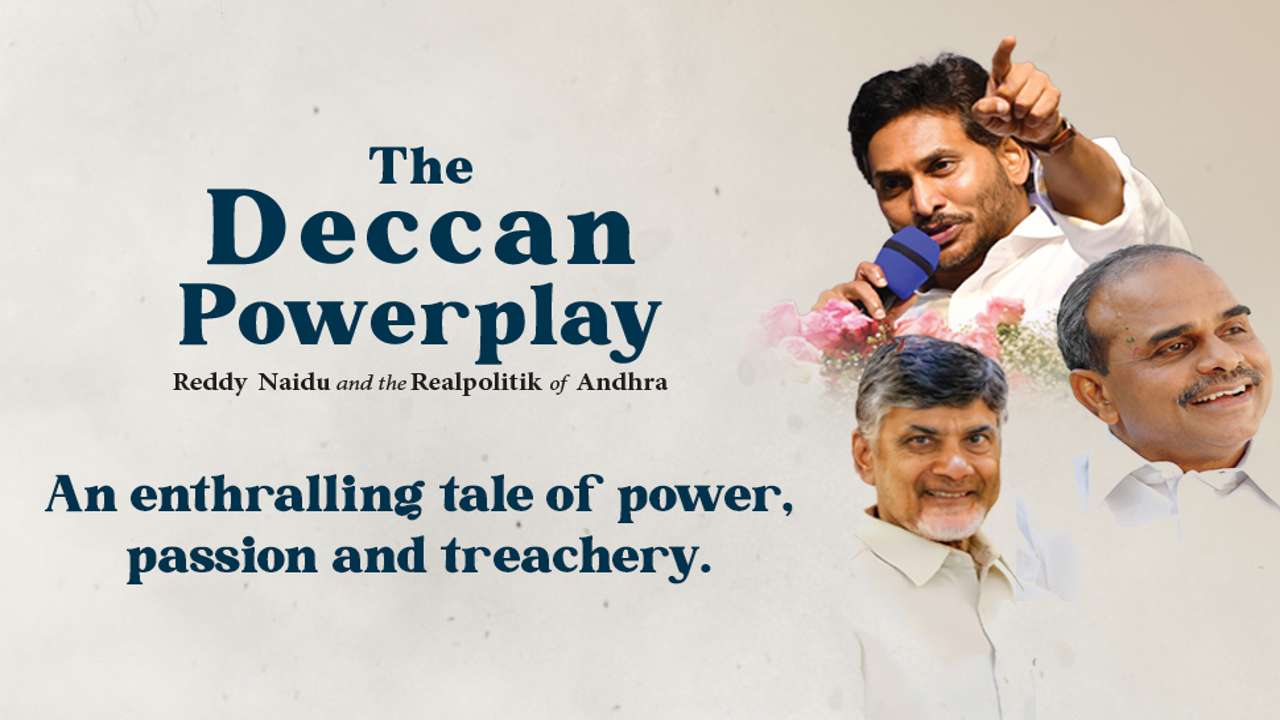
Mike Marqusee’s War Minus The Shooting is a seminal book on cricket and its influence on culture and politics in the Indian sub-continent during the 1996 Cricket World Cup. Amar Devulapalli’s book The Deccan Powerplay, published by Rupa, sounds like a similar exercise with its clear subtitle, “Reddy, Naidu and the Realpolitik of Andhra Pradesh“. The ambitious sounding subtitle crumbles under the weight of belied expectations of a scholarly treatise on the political interplay between the Reddys, the Kammas and the erstwhile united Andhra Pradesh. One can blame it on one’s own hopes and excuse the author of the lapse since the book has just three people to discuss: YS Rajsekhara Reddy, N. Chandrababu Naidu and Y.S. Jagan Mohan Reddy.
The chief protagonists here are YSR and his son, the incumbent Chief Minister of bifurcated Andhra Pradesh, Jagan Mohan Reddy. The lone villain, and one crafty as a fox if ever there was one, is Chandrababu Naidu. The book devotes a chapter to the corruption cases against Naidu, for which he was arrested in September 2023.
In crafting the narrative, the other heavyweights of Telugu country are discussed in passing, as peripheral players. N.T. Rama Rao does get the starring role, as befits the Telugu star of yesteryear and the founder of the Telugu Desam Party. But even this is fleeting. The Congress, which ruled the state till bifurcation, is portrayed as a faction-infested animal — so what if YSR stayed in the party both as loyal soldier as well as a seasoned yet dynamic general?
The book sets out to demolish the halo surrounding Naidu as the man who brought Information Technology majors to Hyderabad, nay Cyberabad, by beating Bengaluru. His breaking with NTR is depicted as a shrewd, calculated gambit to displace the TDP founder, who was also his father-in-law.
The book is replete with this and more Naidu nitpicking. Naidu took no bullshit from politicians or journalists. He gave it back to the scribes when needed, apart from his favourite media groups, one of the reasons they were not very happy kowtowing to him,
as the book suggests. Instead they would make ostentatious bows to any political alternative merely for being less brusque than the now-out-on-bail former CM.
The book picks apart every claim Naidu ever made and portrays him as an opportunist. The problem with this is possibly because Naidu preceded Jagan Mohan as the rump AP’s last CM and had presumably used every trick in his arsenal to discredit the younger contender.
With Assembly elections due this year, this book reads like a party pamphlet and comes across as a political weapon among the undiscerning. An Instagram handle could have been more useful to this end. But for such a grandly-titled book: the anticlimax is swift and painful.
-
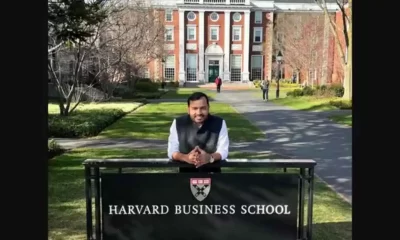
 Education21 hours ago
Education21 hours agoPhysics Wallah founder gets invited as speaker to Harvard, Stanford Universities, post goes viral
-

 2024 Lok Sabha Elections19 hours ago
2024 Lok Sabha Elections19 hours agoMallikarjun Kharge says candidates for Amethi, Rae Bareli seats in Uttar Pradesh will be announced in a few days
-

 2024 Lok Sabha Elections20 hours ago
2024 Lok Sabha Elections20 hours agoPriyanka Gandhi accuses BJP of planning to change the Constitution, criticises PM Modi for inflation
-
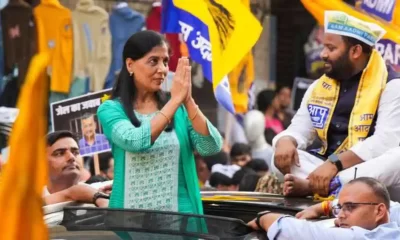
 2024 Lok Sabha Elections17 hours ago
2024 Lok Sabha Elections17 hours agoSunita Kejriwal holds maiden Lok Sabha election roadshow in Delhi
-

 2024 Lok Sabha Elections23 hours ago
2024 Lok Sabha Elections23 hours agoSmriti Irani takes a swipe at Rahul Gandhi for calling Amethi his home but contesting Lok Sabha elections from Wayanad
-

 Cricket news10 mins ago
Cricket news10 mins agoIPL 2024: Rajasthan Royals beat Lucknow Super Giants by 7 wickets and 6 balls to spare





